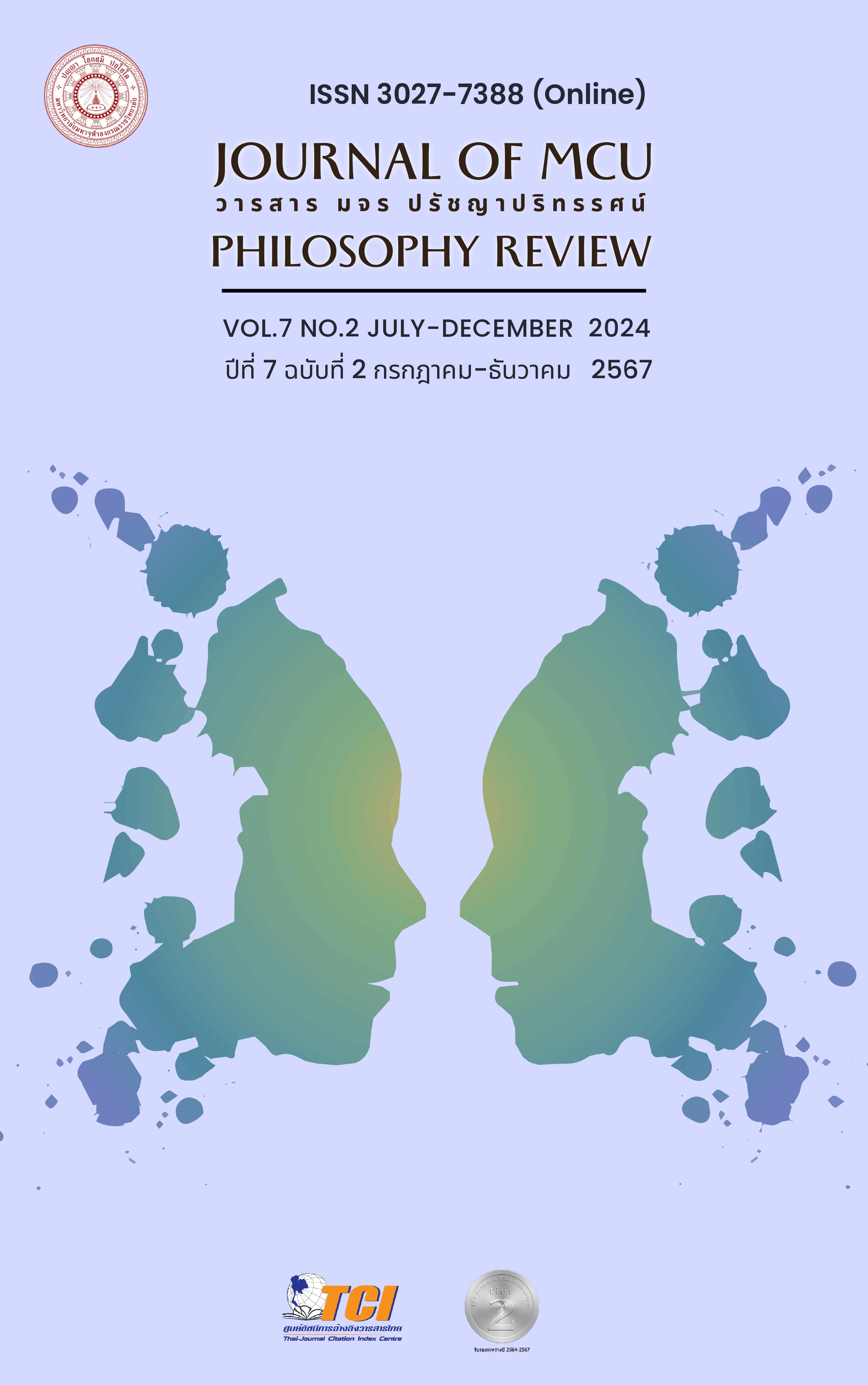The Environment and Natural Resource Conservation System in the Khao Kradong Forest Park through the Power of Baworns at Buriram Buddhist College
Main Article Content
Abstract
This research article aimed to 1) Study the components of the system for conserving nature, environmental resources in Khao Kradong Park. 2) Create and develop a system for conserving nature, environmental resources in Khao Kradong Park with the power of Buriram Sangha College. Buriram is research and development. The population used in this study included in-depth interviews divided into 6 groups: conservation Environmental aspect, Palang Bowon aspect, forestry aspect, community leaders and villagers, totaling 17 people The experimental population consisted of 25 monks, citizens, students, and youths, obtained from purposive random sampling. The tools used in the research include an interview form, a group discussion form with questions that include discussion points to obtain information for system development, and a questionnaire which is an activity evaluation form. Statistics used in the research include percentages, averages, standard deviations. The research findings indicated as follows: 1. The knowledge regarding the environment and natural resource conservation system in the Khao Kradong Forest Park included houses, temples, and schools located in the vicinity of Khao Kradong Forest Park, Buriram Province. 2. The development of the environment and natural resource conservation system in the Khao Kradong Forest Park through the Power of Baworns, led by the Luang Ta Kob Model, included 1) Forest planting activity to foster faith, 2) Volunteer activity for forest conservation, 3) Conservation photography activity, 4) Community forest ordination activity, 5) Forest planting running activity, 6) Water retention dam construction activity, 7) Meditation activity in the forest, and 8) Eco-tourism activity for natural resource conservation. 3. The results of testing the environment and natural resource conservation system included eight activities, which, based on the criteria considered before implementation, were rated at a satisfactory quality level (6 x 100 / 60 = 74). After implementation, the quality level improved to very good (10 x 100 / 10 = 100). 4. The overall evaluation result of the environment and natural resource conservation system was at the highest level (𝑥̅ = 4.62, S.D.=0.67), and was rated at the highest level in all aspects.
Article Details

This work is licensed under a Creative Commons Attribution-NonCommercial-NoDerivatives 4.0 International License.
บทความที่ได้รับการตีพิมพ์เป็นลิขสิทธิ์ของวารสาร มจร ปรัชญาปริทรรศน์
ข้อความในบทความที่ได้รับการตีพิมพ์ในวารสาร ถือเป็นความรับผิดชอบของผู้เขียนบทความ และข้อคิดเห็นนั้นไม่ถือว่าเป็นทัศนะและความรับผิดชอบของกองบรรณาธิการวารสาร มจร ปรัชญาปริทรรศน์
References
ก้องไพร ตันสุชาติ. (2566). ศึกษาผลกระทบทางสังคมและสิ่งแวดล้อมต่อชุมชนจากโครงการสวนสัตว์กลางคืน จังหวัดเชียงใหม่. สืบค้นข้อมูลเมื่อวันที่ 21 เมษายน 2566 จาก https://doi.nrct.go.th/ListDoi/listDetail? Resolve_DOI=10.14457 /CMU.the.2007.644.
ธเนศ เกษศิลป์. (2561). ปัจจัยที่มีผลต่อทัศคติและพฤติกรรมในการอนุรักษ์สิ่งแวดล้อมของนักเรียนระดับมัธยมศึกษาในโรงเรียนที่ตั้งอยู่ใกล้คลองสาธารณะกรณีศึกษาโรงเรียนทีปังกรวิทยาพัฒน์ (ทวีวัฒนา) ในพระราชูปถัมภ์สมเด็จพระโอรสาธิราชฯสยามมกุฏราชกุมาร. วารสารปัญญาภิวัฒน์. 10(3), หน้า 283-296.
พระราชวรมุนี (ประยุทธ์ ปยุตโต). (2529). พุทธธรรม. พิมพ์ครั้งที่ 2. กรุงเทพฯ: มหาจุฬาลงกรณราชวิทยาลัย.
วันเพ็ญ สุรฤกษ์. (2550). การอนุรักษ์สิ่งแวดล้อม. เชียงใหม่: คณะสังคมศาสตร์ มหาวิทยาลัยเชียงใหม่.
วิชัย เทียนหอม. (2533). การอนุรักษ์ทรัพยากรธรรมชาติ. กรุงเทพฯ : อักษรวัฒนา.
สวัสดิ์ ทวีรัตน์. (2543). ความพึงพอใจในงานที่ต้องปฏิบัติของพนักงานพิทักษ์ป่าประจำอุทยานแห่งชาติในจังหวัดเชียงใหม่. ปริญญาวิทยาศาสตรมหาบัณฑิต สาขาวิชาบริหารการเกษตรและป่าไม้. บัณฑิตวิทยาลัย: มหาวิทยาลัยแม่โจ้.
เสฐียร โกเศศ. (2521). ชีวิตชาวไทยสมัยก่อนและการศึกษาเรื่องประเพณีไทย. กรุงเทพฯ : คลังวิทยา.
อภิชาต ทองอยู่. (2431). ทัศนะว่าด้วยวัฒนธรรมชุมชนทางเลือกใหม่ในการพัฒนา. กรุงเทพฯ : สถาบันคาทอลิกแห่งประเทศไทยเพื่อการพัฒนา.
เอกวิทย์ ณ ถลาง. (2536). คนกับดิน น้ำ ป่า จุดเปลี่ยนแห่งความคิด. กรุงเทพฯ : สถาบันชุมชนท้องถิ่นพัฒนา.


